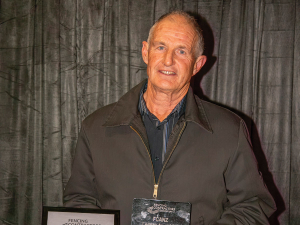A letter by Hallman and others published last week in the renowned journal Nature details how increasing concentrations of the insecticides in surface water correlate with declines in insect eating birds.
The authors say their findings suggest impact of the insecticides is “even more substantial than has recently been reported and is reminiscent of the effects of persistent insecticides in the past”.
They call for legislation to take into account “the potential cascading effects of neonicotinoids on ecosystems”.
Commenting on the discovery in a news article in the same journal, Dave Goulson of Sussex University’s School of Life Sciences says it is “reminiscent” of Rachel Carson’s milestone 1960s novel Silent Spring.
Goulson suggests the long-running debate on neonicotinoids, and Europe’s two-year moratorium on its use on flowering crops imposed in December, may have missed “the bigger picture” as they are still widely used as seed dressings.
The insecticides are used in New Zealand as seed treatments for grass, cereals, maize-sweetcorn, pumpkins-squash and brassicas, and as sprays on potatoes, onions, vegetable brassicas, pipfruit and stonefruit.
Asked whether a review of nicotinoid use in New Zealand is underway or planned, the Environmental Protection Agency told Rural News its staff “monitor international developments in the science and regulatory activity” and that “New Zealand already has very tight restrictions in place”.
However, it says it is updating requirements for applicants seeking approvals for new pesticides in New Zealand “in line with overseas regulators in the US and Europe”.
“We are demanding a much higher level of scientific evidence about the safety and effect of such products before considering them for approval.”

















